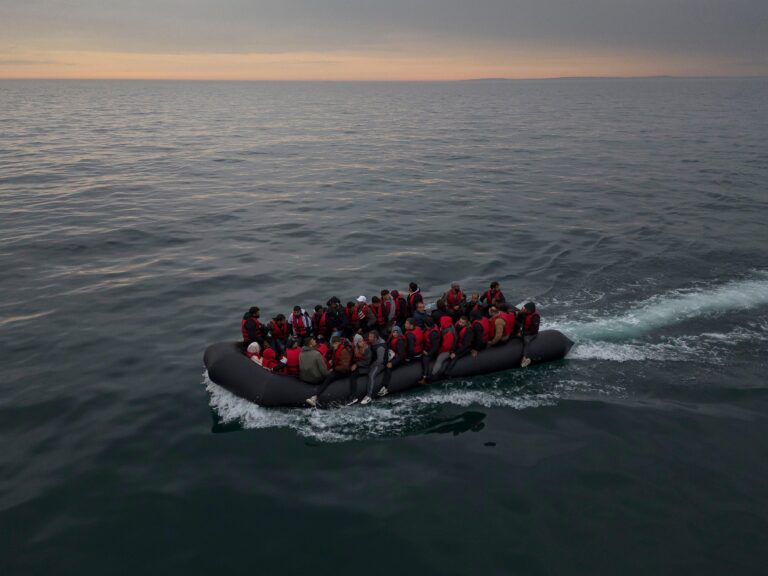Nine individuals have been sentenced in France in connection with a tragic small boat crossing that resulted in the deaths of at least four people, authorities confirmed. The case, investigated in collaboration with the National Crime Agency, highlights the ongoing dangers faced by migrants attempting perilous journeys across the Channel. The convictions mark a significant development in efforts to combat trafficking and illegal crossings in the region.
Sentences Delivered in France for Fatal Small Boat Crossing Tragedy
French authorities have handed down sentences to nine individuals found guilty in connection with the tragic small boat crossing that resulted in the deaths of at least four people. The National Crime Agency highlighted the case as a stark reminder of the dangers involved in illicit migration attempts across the channel. The convicted individuals were apprehended after a thorough investigation uncovered their roles in organizing and facilitating these perilous journeys.
Sentences ranged from several years in prison to fines, reflecting the severity of the offenses. Key factors influencing the rulings included evidence of human trafficking, negligence, and endangerment of life. Below is a summary of the sentencing details:
| Name/Role | Sentence | Charges |
|---|---|---|
| Main Organizer | 8 years imprisonment | Human trafficking, endangerment |
| Boat Operator | 6 years imprisonment | Negligence, manslaughter |
| Lookout | 3 years imprisonment | Assisting illegal migration |
| Facilitators (6) | 2-4 years imprisonment | Conspiracy, aiding and abetting |
- Authorities praised international cooperation for enabling arrests and convictions.
- The case underscores ongoing risks migrants face when undertaking unsafe crossings.
- Preventative measures and stricter enforcement remain priorities in reducing such tragedies.
Investigation Reveals Network Behind Illegal Crossings and Safety Negligence
The recent convictions highlight a deeply entrenched criminal network that capitalized on the desperation of migrants seeking passage across the English Channel. Authorities uncovered a sophisticated operation coordinating small boat crossings, where safety protocols were deliberately ignored to maximize profit and evade law enforcement. These illegal crossings not only endangered lives but also exposed migrants to severe exploitation, with traffickers operating during high-risk weather conditions and overcrowding vessels without regard for human life.
Key elements of the investigation revealed:
- Organized roles: From recruiters to boat operators and coordinators on both sides of the channel.
- Financial transactions: Wire transfers and cash payments that linked multiple countries.
- Communication methods: Use of encrypted messaging apps to avoid detection.
- Repeated safety breaches: Overloaded boats and absence of life jackets or emergency equipment.
| Role | Number of Sentenced Individuals | Primary Responsibility |
|---|---|---|
| Recruiters | 3 | Identifying and persuading migrants |
| Boat Operators | 4 | Navigating and piloting vessels |
| Coordinators | 2 | Organizing timing and logistics |
National Crime Agency Calls for Strengthened Cross-Border Cooperation
The recent convictions in France of nine individuals connected to a small boat crossing tragedy, which resulted in the deaths of at least four migrants, have heightened calls for enhanced collaboration among European law enforcement agencies. The National Crime Agency (NCA) has emphasized that transnational crime networks exploit fragmented jurisdictional boundaries, enabling human traffickers and smugglers to operate with impunity. This case underlines the urgent need for a more unified international approach to intelligence sharing, coordinated operations, and legal frameworks to dismantle these dangerous smuggling rings effectively.
Key recommendations from the NCA highlight several priorities for cross-border cooperation:
- Real-time intelligence exchange: Improved data sharing between countries to track and intercept suspicious movements swiftly.
- Joint operational task forces: Deploying multi-national teams to conduct synchronized enforcement actions.
- Legal harmonization: Streamlined extradition and prosecution protocols to ensure swift justice across borders.
- Capacity building: Enhanced training programs for frontline officers to identify and prosecute human trafficking offenses more effectively.
| Aspect | Current Challenge | Proposed Improvement |
|---|---|---|
| Intelligence Sharing | Delayed and fragmented | Centralized rapid-response platform |
| Legal Coordination | Varied national punishments | Unified prosecution guidelines |
| Operational Collaboration | Limited joint actions | Cross-border task forces |
| Training | Inconsistent across countries | Standardized international curricula |
Recommendations Urged to Prevent Future Maritime Human Trafficking Incidents
The tragic consequences of the recent small boat crossing have spotlighted the urgent need for enhanced safety protocols and international cooperation to combat maritime human trafficking. Experts emphasize the importance of strengthening surveillance and intelligence sharing among border agencies to intercept traffickers before dangerous voyages commence. Additionally, investment in safer and legal migration pathways must be prioritized to reduce the desperation that drives individuals to risk such perilous journeys.
A coalition of law enforcement and humanitarian organizations has recommended several strategic measures to address the multifaceted challenges posed by maritime trafficking, including:
- Improved cross-border coordination and rapid information exchange
- Enhanced training for coast guard and customs officials on human trafficking indicators
- Establishment of emergency response teams for maritime distress situations
- Public awareness campaigns targeting vulnerable communities on the dangers of illegal crossings
| Responsible Party | Recommended Action |
|---|---|
| National Authorities | Increase border patrol resources |
| International Agencies | Coordinate joint task forces |
| NGOs | Support victim rehabilitation programs |
| Community Leaders | Disseminate accurate migration information |
In Summary
The sentencing of nine individuals in connection with the tragic small boat crossing that resulted in at least four deaths marks a significant development in the ongoing efforts to combat human trafficking and unsafe migration practices. Authorities continue to emphasize the importance of lawful, safe channels for travel while reinforcing cross-border cooperation to prevent such tragic incidents in the future. The case serves as a stark reminder of the human cost of illicit migration and the urgent need for comprehensive solutions.




